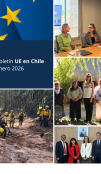The Global Media Defence Fund launches 6th Call for Partnerships to Strengthen Legal Protection for Journalists

Investigative journalism is vital to protecting journalists and reducing impunity for crimes against them. Yet, as a recent UNESCO survey highlights, 68% of judicial actors report that strategic lawsuits against journalists and media outlets are becoming more innovative. The fight against impunity cannot rest on journalism alone- strong legal protections are therefore a necessary complement: investigative reporting exposes crimes against journalists, while robust legal safeguards shield those reporters from retaliation through the courts.
Journalists face diversified legal threats
Legal harassment of journalists is no longer limited to traditional defamation claims. Today, journalists encounter charges ranging from terrorism and anti-state allegations to financial crimes and “false news” accusations. These complex legal tactics make it increasingly difficult for media professionals to operate freely and safely.
UNESCO’s survey of media lawyers further underscores the challenges: one in three media lawyers face significant barriers when defending journalists, including insufficient resources, lack of specialized training, and fear of reprisals.
Protecting journalists through stronger legal protection
The new Call for Proposals seeks projects that provide practical ways to enhance legal support for journalists, reinforce accountability in the face of legal threats, and break the cycle of impunity. Projects should focus on at least one of the following areas:
-
Rapid Legal Assistance and Mechanisms: Reinforcing the operationalization of national safety mechanisms and peer support networks to ensure journalists’ rapid access to legal assistance, strengthening their defense, and addressing gender-specific threats.
- Investigative Journalism to Reduce Impunity: Supporting investigative journalism that holds justice systems accountable and by pursuing investigative work that risks censorship when journalists are attacked, imprisoned, or murdered; and enhances the safety of those conducting this line of work.
-
Strategic Litigation: Enhancing structures for strategic litigation to protect independent, free, and plural media ecosystems at national and regional levels.
This Call for Partnerships is open to specialized not-for-profit entities including:
-
NGOs (including women-led and specialized women’s rights organisations),
-
media associations and journalists’ unions,
-
lawyers’ associations and pro bono legal aid organizations,
-
lawyers’ and investigative journalism networks
-
foundations, and academic institutions.
These organisations should be active and registered for at least two years and meet the criteria established in the Terms of Reference of the Call.
The deadline for the submission of the proposals is Friday 2 January 2026, 23:59 UTC+1. The size of the financial grants distributed under this Call will range from a minimum USD $15,000 to a maximum $50,000.
The Global Media Defence Fund
The Global Media Defence Fund is a UNESCO Multi-Partner Trust Fund under the overall umbrella of the UN Plan of Action on the Safety of Journalists and the Issue of Impunity.
Administered by UNESCO, in the past six years the Global Media Defence Fund has funded the implementation of around 170 projects around the globe, which in turn has supported over 9,000 journalists, 1,600 lawyers and 300 media organizations. It has also supported the global initiative on strategic lawsuits against freedom of expression, with the Multi-Donor Programme on Freedom of Expression and Safety of Journalists aiming to build a legal system that ensures an enabling environment for freedom of expression and to bolster the legal safety of journalists across the globe.
Over six years of implementation, the Fund has received generous financial support from Australia, Austria, Canada, Cyprus, Czech Republic, Estonia, France, Germany, Ireland, Italy, Japan, Latvia, Lithuania, Luxembourg, the Netherlands (Kingdom of the), New Zealand, Serbia, Slovakia, Switzerland, and United Kingdom; as well as a private sector donor, Siemens AG.





